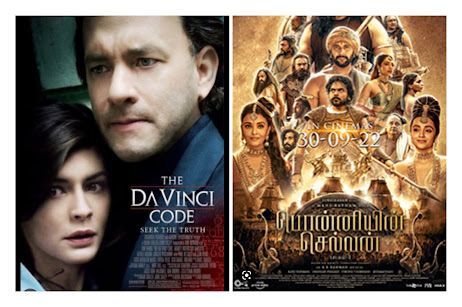J.K.Rowling has a more compelling story. A typical rags to riches story. Legend has it that with her personal life in shambles a penniless Rowling wrote her first installment of Potter sitting in Starbucks cafe. A publisher holidaying in England picks up her little noticed book and gets the rights for USA. The rest is history. But its not as simple as that. What she achieved is of gargantuan proportions. When the last Potter book released across continents and countries far removed from England, kids in Delhi, Chennai, China, Europe, Latin America thronged by the thousands to get their copy of a 800+ page book. If any author is said to have created a world and tapped into an universal conscience it was Rowling. Kids across cultures and worlds apart felt drawn to a wizarding boy battling an unimaginable evil. Eventually Rowling earned more than the Queen, importantly she 'earned' it and also paid taxes.
Hollywood came calling to Rowling too. The Potter films have so far garnered several billions. Here one has to pause and appreciate the vertically integrated model of Hollywood. A book gets published, a production company makes a movie, author's get millions in fees, screen play writers get royalty for DVD bought in addition to fees during the making of the movie, with Blu Ray many buy Potter movies all over again, so repeat consumers. Given the stature of Rowling and Brown they draw up contracts giving them portions of the movies revenues right up to DVD sales.
Before anybody trashes Hollywood for commercialisation and going for lightweight novels let it be noted that Hollywood also made a movie of Umberto Eco's symbolism laden "The name of the Rose", that too starring Sean Connery.
Brown and Rowling are phenomenons re-defining the idea of 'convergence'. There is news now of a Harry Potter theme park in Orlando. Tour operators are busy planning Dan Brown tours in Washington DC based on his latest book. Already Paris has a 'Da Vinci code' tour. If this is commercialisation lets have more of it. Brown's 'Da Vinci' may lack literary merit but he made millions look up "Da Vinci, Knights Templar, Medici, Bernini, etc" in search engines. Those topics became the widely searched ones in search engines. Theological debates on Christ and Church history abounded.
I am often accused of being unfair to Tamil heritage. Here is a thought to mull. Kalki's opus "Ponniyin Selvan" has literary merits far exceeding Dan Brown. For a minute lets close our eyes and see a Dan Brown like transformation for Ponniyin Selvan. A publisher comes out with a nice paperback, artfully illustrated. An offshooot publication for children as comics. A movie deal starring Kamal (its his passion) as Vandhiathevan. Ponniyin Selvan tours in and around Tanjore. Big Temple, Gangai konda chola puram all become hot spots. A corollary industry of books analysing the chola period. Documentaries (how many Da Vinci related documentaries sprouted recently), museums resurrected, cruises on Kaveri with stops along dramatic spots, tourists with multi-lingual head sets....Its a good dream.
